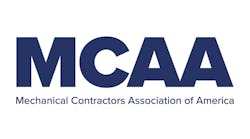Latest from Around the Web
Sponsored
Biden Administration Issues Final Rule Implementing Executive Order on Project Labor Agreements
WASHINGTON, DC — On December 18th the Biden Administration issued the final rule implementing Executive Order 14063, officially titled Use of Project Labor Agreements for Federal Construction Projects.
The order will require that every prime contractor and subcontractor on a federal construction project of $35 million or more performed within the United States sign a project labor agreement as a condition of winning a contract (with some possible exceptions).
A Project Labor Agreement (PLA), also known as a Community Workforce Agreement, is a pre-hire collective bargaining agreement with one or more labor unions that establishes the terms and conditions of employment for a specific construction project.
The Biden Administration issued a statement on the final rule that reads in part:
We must do everything we can to build a better America. Today, my Administration is marking another major step that will benefit American workers, communities, the economy, and our government. For the first time in history, Project Labor Agreements will be required on federal construction projects valued at or above $35 million. This means that projects funded by my Investing in America agenda will move faster and without delays, giving taxpayers better bang for their buck. Workers will have the security and peace of mind that collectively bargained wages and benefits bring, better pathways to good-paying jobs, and stronger health and safety protections.
The Biden administration expects the PLA rule to affect about 120 federal contracts valued at $10 to $14 billion per year, in total.
Industry Response
Associated Builders and Contractors, which has long opposed PLAs, issued a statement in which Ben Brubeck, ABC vice president of regulatory, labor and state affairs, said, "The Biden administration’s burdensome, inflationary and anti-competitive PLA mandate rule will needlessly raise costs on taxpayer-funded construction projects and steer contracts to unionized contractors and workers. Absent a successful legal challenge, this executive overreach will reward powerful special interests with government construction contracts at the expense of taxpayers and the principles of free enterprise and fair and open competition in government procurement.
“ABC will continue to fight on behalf of quality, experienced contractors harmed by this rule and the 88.3% of America’s construction industry who have made the choice not to belong to a union and want a fair opportunity to participate in federal construction projects—but cannot do so because of PLA schemes."
In sharp contrast, United Association of Union Plumbers and Pipefitters (UA) General President Mark McManus hailed the final rule as critical to modernizing the nation’s infrastructure and creating family-sustaining jobs.
“President Biden’s Executive Order is a historic and groundbreaking step for working families across America," McManus said. "For generations, project labor agreements have meant our members earn fair wages and benefits—and projects get completed on time and on budget. These common-sense agreements lead to better outcomes for all involved, whether you’re a project owner, contractor, or construction worker.
"This Executive Order will lower costs, create competition, and expand job opportunities for all Americans regardless of union membership. Even more, this action will fundamentally alter the landscape for working Americans as it will level the playing field across industries and give everyone a fair shot at the middle class. President Biden promised to be the most pro-worker President in American history, and this Executive Order is proof to his commitment to keeping that promise.”
Political vs. Practical
In practice, the executive order will make it all but impossible for merit shops to bid on most large federal projects. Supporters and detractors make diametrically-opposed claims as to the value of PLAs.
The Department of Labor's Project Labor Agreement Resource Guide lists many benefits of PLAs, notably that they organize complex construction projects to ensure their efficient and timely completion. Because PLAs (almost universally) contain no-strike, no-lock-out clauses they eliminate delays associated with labor unrest.
The Center for American Progress calls PLAs an effective tool for creating good value on taxpayer-funded projects. One construction industry consultant found that union labor is 14 percent more productive than merit-shop labor, and projects with collective bargaining agreements experience lower turnover, fewer shortages, and an average overall 4 percent reduction in project costs.
Data from ABC (collected on their website, thetruthaboutplas.com) stands in stark contrast. According to their research, PLAs increase construction costs by 12% to 20%, reduce opportunities for qualified contractors and their skilled craft professionals and will exacerbate the construction industry’s worker shortage.
Editors note: CONTRACTOR is at this time unable to independently verify or disprove these competing claims, but welcomes expert opinions on the topic.


